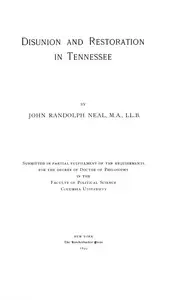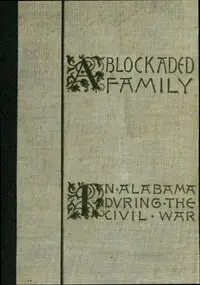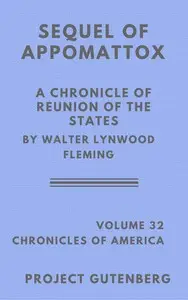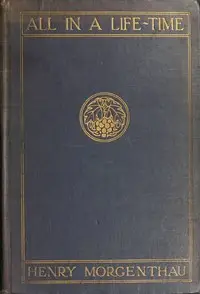"Civil War and Reconstruction in Alabama" by Walter L. Fleming is a recount of a state grappling with profound change. As readers navigate through the book, they will encounter the motivations and methods the author used to present the study. The professor aims to give the era important historical context as it relates to Alabama's societal structures. The professor reviews the state from before the war, through to the challenges of rebuilding, with a consistent look at the racial divide within society. The author explores the political climate of Alabama and the impact of its population on choices that would pull the state into secession and war.

Civil War and Reconstruction in Alabama
By Walter L. (Walter Lynwood) Fleming
In a state torn apart by war and division, discover how the past shaped the present and changed Alabama forever.
Summary
About the AuthorWalter Lynwood Fleming (1874–1932) was an American historian of the South and Reconstruction. He was a leader of the Dunning School of scholars in the early 20th century, who addressed Reconstruction era history using historiographical technique. He was a professor at Vanderbilt University from 1917 through his career, also serving as Dean of the School of Arts and Sciences, and Director of the Graduate School. A prolific writer, he published ten books and 166 articles and reviews. The son of a plantation owner who had slaves, Fleming was sympathetic to White supremacist arguments and Democratic Party positions of his era while critical of Republicans and Reconstruction.
Walter Lynwood Fleming (1874–1932) was an American historian of the South and Reconstruction. He was a leader of the Dunning School of scholars in the early 20th century, who addressed Reconstruction era history using historiographical technique. He was a professor at Vanderbilt University from 1917 through his career, also serving as Dean of the School of Arts and Sciences, and Director of the Graduate School. A prolific writer, he published ten books and 166 articles and reviews. The son of a plantation owner who had slaves, Fleming was sympathetic to White supremacist arguments and Democratic Party positions of his era while critical of Republicans and Reconstruction.















